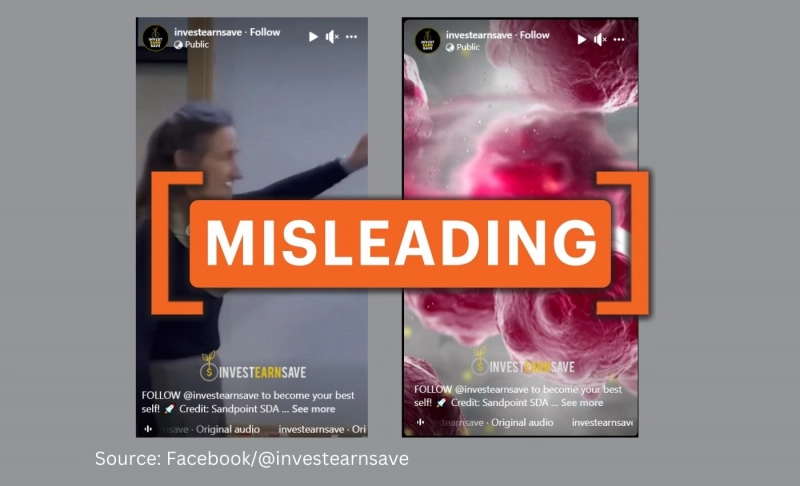By: Rajini KG
June 2 2023

There is no adequate scientific evidence to show that lowering sugar intake can cure or prevent cancer.
Context
A video circulating on Facebook claims that reducing sugar intake can prevent or treat cancer. In the video, Barbara O'Neill, an Australian naturopath, claims that reducing sugar intake starves cancer cells and inhibits their growth.
However, no medical studies have proven this effective in treating or curing cancer, and Australian medical authorities have questioned O'Neill's credentials.
In Fact
The claim that reducing sugar consumption or having sugar-free diets makes cancer cells deprived and prevents cancer is not supported by scientific evidence and is not endorsed by medical professionals.
Speaking with The Quint, Dr. Sidharth Sahni, an oncologist at Indraprastha Apollo Hospitals, refuted the claim. Sahni states, "Eliminating sugar can never entirely prevent cancer or any disease, but it does cut out a huge risk factor. Sugar refers to white sugar specifically and not glucose or fructose, which is naturally present in many fruits and vegetables."
According to the University of Kentucky, a 2017 medical study published in the medical journal Nature Communications, about the relationship between glucose (sugar) and cancer cell growth, led some to believe that cancer patients should reduce their sugar intake to restrict cancer cell growth. However, the study had many undermining factors because it was conducted in a laboratory environment, and its results suggested further research is required.
Craig B Thompson, president and CEO of the Memorial Sloan Kettering Cancer Center, who studies the relationship between metabolism and cancer, states that the link between cancer and sugar was discovered when Otto Warburg, a German researcher, first observed that tumor cells in a dish tended to use more glucose than non-dividing healthy tissues over 90 years ago.
Thompson states that "Everything about your biology has been naturally selected for at least 600 million years to make sure that no matter what you eat, you keep enough glucose in your system and don't become deficient. So it's very hard to affect the system by changing your diet. Eating less sugar will just make the body use its remaining resources to produce the glucose on its own." Thompson adds that obesity is the leading risk factor for cancer and that consuming excess sugar could lead to obesity.
Erma Levy, a Senior Research Dietitian at the MD Anderson Cancer Center, suggests avoiding excess sugar intake because it increases weight gain, which may lead to other health problems. Avoiding sugar does not directly prevent cancer.
The National Cancer Institute lists many studies conducted to exhibit the relationship between artificial sweeteners and cancer. It concludes that none of them have shown concrete proof that artificial sweeteners cause or reduce cancer. Cancer Research UK also mentions that there is no proof eating a "sugar-free" diet reduces the chance of developing cancer or increases survival rates.
Centers for Disease Control and Prevention lists the required treatments for cancer patients. Cutting down sugar intake or having a sugar-free diet is not listed as a treatment for cancer patients. Reducing sugar intake may reduce the risk of obesity, but it does not have a direct effect on cancer.
Barbara O'Neill, the woman in the video, regularly makes unfounded claims about immunizations, cancer causes and treatments, and newborn feeding, that are dangerous and unsupported by scientific research. The Health Care Complaints Commission of New South Wales, Australia, referred to O'Neill as an "unregistered practitioner" in a public statement released in January 2019. O'Neill has been permanently barred from rendering any medical services after the panel determined that she endangers the public's health or safety.
The Verdict
Cutting down the sugar below the normal recommended levels causes deficiency and leads to many health problems. No scientific evidence corroborates that a sugar-free diet will prevent or cure cancer.